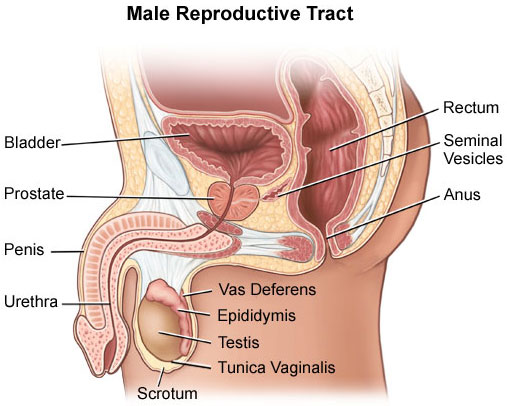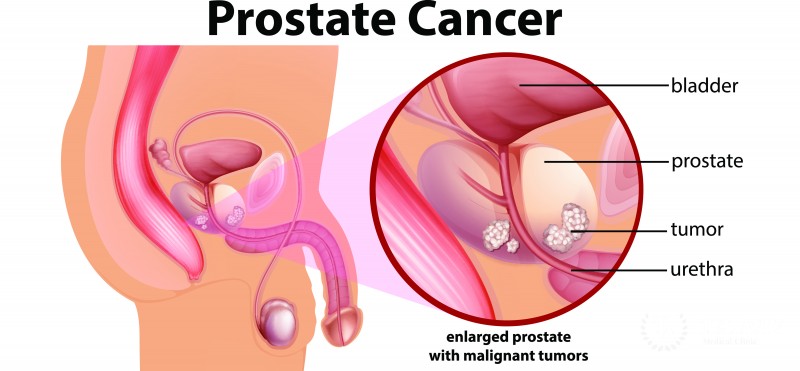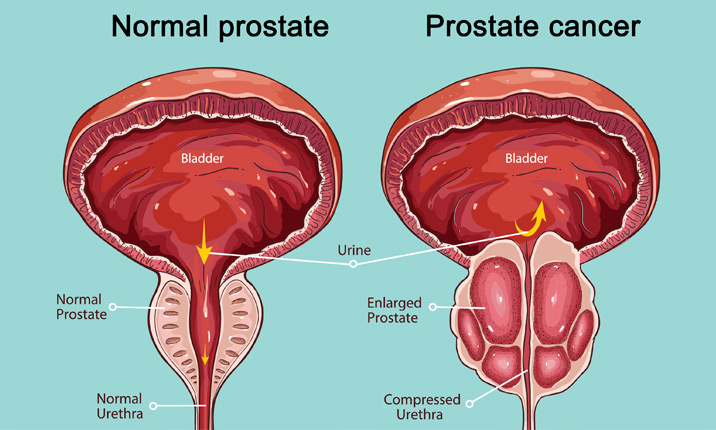


Prostate cancer is cancer that occurs in the prostate. The prostate is a small walnut-shaped gland in males that produces the seminal fluid that nourishes and transports sperm.
Prostate cancer is one of the most common types of cancer. Many prostate cancers grow slowly and are confined to the prostate gland, where they may not cause serious harm. However, while some types of prostate cancer grow slowly and may need minimal or even no treatment, other types are aggressive and can spread quickly.
Prostate cancer that's detected early — when it's still confined to the prostate gland — has the best chance for successful treatment.
Factors that can increase your risk of prostate cancer include:
Complications
Complications of prostate cancer and its treatments include:
Prostate cancer may cause no signs or symptoms in its early stages.
Prostate cancer that's more advanced may cause signs and symptoms such as:
When to see a doctor
Make an appointment with your doctor if you have any persistent signs or symptoms that worry you.
Causes
Digital rectal exam
Testing healthy men with no symptoms for prostate cancer is controversial. There is some disagreement among medical organizations whether the benefits of testing outweigh the potential risks.
Most medical organizations encourage men in their 50s to discuss the pros and cons of prostate cancer screening with their doctors. The discussion should include a review of your risk factors and your preferences about screening.
You might consider starting the discussions sooner if you're a Black person, have a family history of prostate cancer or have other risk factors.
Prostate screening tests might include:
Your prostate cancer treatment options depend on several factors, such as how fast your cancer is growing, whether it has spread and your overall health, as well as the potential benefits or side effects of the treatment.
Low-grade prostate cancer may not need treatment right away. For some, treatment may never be needed. Instead, doctors sometimes recommend active surveillance.
In active surveillance, regular follow-up blood tests, rectal exams and prostate biopsies may be performed to monitor progression of your cancer. If tests show your cancer is progressing, you may opt for a prostate cancer treatment such as surgery or radiation.
Active surveillance may be an option for cancer that isn't causing symptoms, is expected to grow very slowly and is confined to a small area of the prostate. Active surveillance may also be considered for someone who has another serious health condition or who is of an advanced age that makes cancer treatment more difficult.
Years of Experience
0
Medical Spesialities
0
Medical Spesialities
0
Happy Patients
0